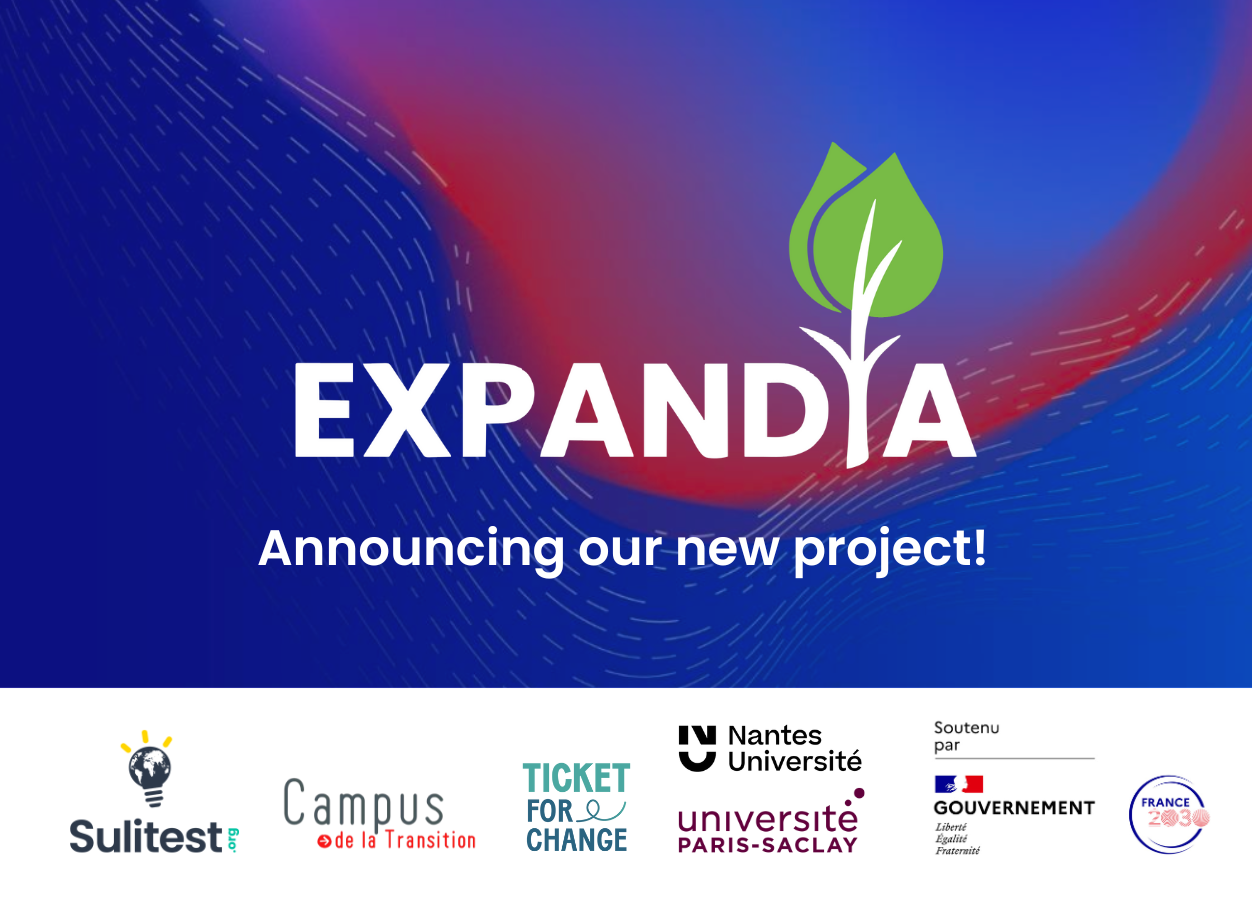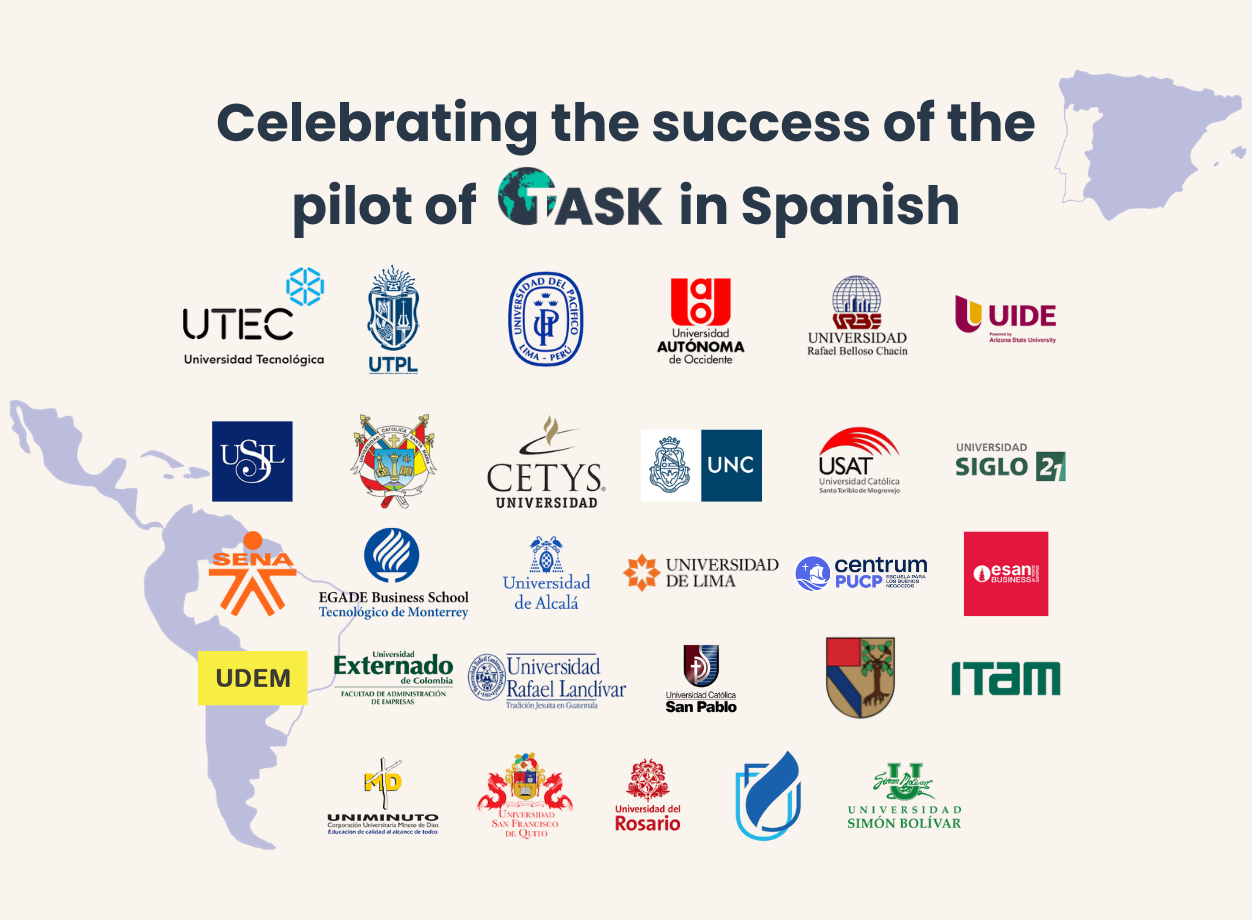
Bridging the Gap: Mainstreaming Sustainability in Education through Collaboration

On Wednesday the 17th of July, we hosted our 8th annual United Nations HLPF side event, where we discussed with experts and pioneers of sustainability in higher education!
In some recent research done by the QS ranking, it was discovered that over half of students actively researched the sustainability strategies or credentials of an institution as part of their selection process, yet only 20% of those were satisfied with what they had seen available. This is just one statistic exemplifying the importance of sustainability in higher education.
During this discussion centered around equipping educators to promote sustainability, Sulitest members shared trends on sustainability knowledge worldwide, as well as what we learned from our recent global survey on “Exploring Perception of Faculty Engagement in Sustainability”.
The highlight of the session were the dynamic discussions between our panelists, comprising representatives from networks, rankings organizations, and accreditation bodies.
Panel Discussions – Scaling Sustainability in Higher Education
Quality assurance & assessment (FT, THE, QS, AACSB, PIR & EFMD)
On the first panel, Duncan Ross from THE (Times Higher Education), Andrew Jack from the FT (Financial Times), Leigh Kamolins from QS (Quacquarelli Symonds), Susan Hart from EFMD Global, Lily Bi from AACSB, and Prof. Dr. Katrin Muff from the PIR (Positive Impact Ratings) discussed the role of their institutions (ratings, rankings and accreditation bodies) in driving positive change in higher education.
Breaking silos and breaking down the resistance to change, as well as reaching out to stakeholders beyond the education field, like the civil society or the government, and agreeing on common standards, were among some of the few propositions discussed.

The creation of a publicly accessible database across the various raters/rankers and a shift of focus from input and process measures to output and impact measures was suggested by Andrew Jack.
This, in line with the assertion by Leigh Kamolins on the need for a healthy balance between competition and collaboration, underlined the importance of collective action for the achievement of the greater good.
To do so national quality assurance agencies and professional accreditation agencies should be encouraged to take part in this shift in focus, as asserted Duncan Ross.
The event also highlighted the importance of involving students in this collaboration. Indeed, the Positive Impact Rating, co-developed with many of the networks present, harbours the space and framework for business schools to better hear their students. So far, 40 000 students have been able to assess their institutions from a cultural, governance, educational, and local perspective.
Finally, Lily Bi reminded everyone that higher education’s shared mission should be to develop responsible leaders, with sustainability being not just an add-on, but a key element, embedded deeply into everything we do, rankings and accreditation included.
Adding to this call to develop responsible leaders, Susan Hart reiterated the EQUIS approach centered around ethics, responsibility and sustainability. These are three transversal standards, relevant to any course or educator. As such, she stressed the importance of breaking down disciplinary silos in universities and promoting collaboration.
Networks expanding innovative practices (AASHE, PRME, SDSN & SOS)
On the second panel, Meghan Fay Zahniser from AASHE, Patrick Paul Walsh from SDSN, Quinn Runkle from SOS UK, and Meredith Storey from the UN PRME elaborated on the role of networks in supporting institutions through this change, and growing the sustainability literacy movement from a few pioneer educators to a global norm.
Panelists shared the objective of supporting institutions in truly embedding sustainability, like a golden thread, through all parts of the education system, ensuring it is high-quality, solution-centred, hands-on, and relevant to students' own lived experiences, cultural backgrounds, communities, disciplines, and future career ambitions.

Meghan Fay Zahniser highlighted their role as networks in streamlining the processes and data collection to facilitate institutions’ participation in assessments. By increasing efficiencies for already limited sustainability staff, in terms of capacity and resources, she expressed her desire that educators could then focus better on creating positive impact, as opposed to figuring out how to do so or how to report said impact.
Building on that, Meredith Storey underlined the importance of having the infrastructure and connections necessary to facilitate the exchange of good practices, a key objective of the PRME community. In her experience, what works in one area might be very translatable to others; hence the need for bridging this gap to promote collaboration between professors, regardless of their disciplines.
At SDSN and the SDG Academy, by focusing on the science-policy interface (which is often neglected due to its perceived lack of commercial value), their goal is to represent nature, by creating courses powered by a framework centred around it. Patrick Paul Walsh highlighted the importance of working with universities to integrate these external resources into their own training and LMS, as well as working with government and corporations to promote this sustainability education beyond the lecture hall. Moreover, he highlighted the importance of building a learning journey, ensuring the learner always has a next step, often leading to a certification or other forms of recognition.
To wrap it all up, Quinn Runkle of SOS UK highlighted the need for genuine partnership. Indeed, considering young people as equal partners could be a great enabler, as they often bring a more radical, challenging perspective to the table. She pointed out that to collaborate effectively, higher education needs to support them with training, capacity building, funding, and resources.
She cited the Responsible Futures program, which provides a key framework for students and staff to work together in partnership to integrate sustainability deeply into the formal, informal, and subliminal curriculum. Its assessment through a student-led audit holds institutions particularly accountable.
This is a rich example of how bringing the right people together with a shared vision can drive the catalytic transformation needed in the sector, she added. Moreover, it stresses the importance of involving students in the design, development and assessment of sustainability performance, as discussed in the first panel.
Many thanks to John North and Kathleen Ng who moderated these insightful conversations.
Missed the live event? Watch the replay to catch up on these insightful conversations!
Launching our 2024 Report!
During this event, we announced the relevant annual sustainability trends in our new report, a consolidation of our movement’s efforts in the past year.
Notable mentions include:
- The robustness of the TASK™ knowledge model, and understanding your score
- The PRME Impactful Five (i5) program, and how Sulitest takes the lead in assessing and following the development of playful learning and transformative pedagogical approaches for business schools.
- Comprehensive data on the knowledge ability correlations between TASK™ scores and the SDGs
- The Change Leader Community and mainstreaming sustainability knowledge across continents and a variety of different higher education programs through TASK™
Discover the insights
How do schools and universities integrate TASK™? Case studies from the growing community of Change Leaders

Among the 60 institutions that use TASK™ globally, 36 have joined the TASK™ Change Leader program, joining our effort to make sustainability a common language for all graduates.
These institutions have committed to the ambitious objective of assessing and certifying majority of their graduates with TASK™ within three years. As part of the program, they have unlimited access to the assessment and join a network of like-minded educators.
In the report, we featured the case studies of 4 institutions: University of Sussex Business School, Junia School of Engineering, KEDGE Business School, and ESCP Business School. If you’re curious to see TASK in practice, look at pages 27 to 30 of the report.
Looking to the Future: Vision 2030
As we at Sulitest continue to advocate for curricular reform across higher education, by developing a suite of tools and processes that support this goal, raising awareness around sustainability, and assessing knowledge levels, we are both humbled and alarmed by how much remains to be done.
The world is making progress on the SDGs—but not nearly enough and not as quickly as projected, hoped for, and needed.
In the short 5.5-year period that remains to hit this target, we commit to providing educators, their institutions and stakeholders with the tools, resources, metrics and assessment processes they need to help students acquire such sustainability knowledge and skills.
More so, we will continue to foster collaboration among and beyond higher education, because as the many experts rightly pointed out, mainstreaming sustainability literacy calls for collective action. We hope you join this movement too.












